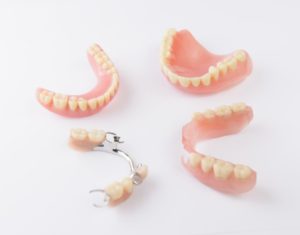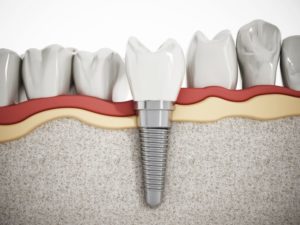 We know it can be difficult living life with missing teeth. Not only does your self-esteem take a hit, but if not treated quickly, you can face multiple issues with your appearance, bite, speech, and chewing abilities. If you are tired of the vacated sockets staring back at you each day, talk to your dentist in West Allis, WI about dentures and partials. Learn how they can not only give you back your smile but how proper maintenance can keep them lasting for years.
We know it can be difficult living life with missing teeth. Not only does your self-esteem take a hit, but if not treated quickly, you can face multiple issues with your appearance, bite, speech, and chewing abilities. If you are tired of the vacated sockets staring back at you each day, talk to your dentist in West Allis, WI about dentures and partials. Learn how they can not only give you back your smile but how proper maintenance can keep them lasting for years.
How to Maintain Your Dentures Using These 7 Tips in West Allis, WI
March 3, 2019
Consider Periodontal Therapy in Milwaukee for Your Aging Gums!
June 7, 2018
 As we age, many transformations can occur. Our hairline recedes, we gain weight more easily, but according to your dentist, one of the most pronounced changes occurs in our mouth. Aging can actually cause the gum line to recede, leaving more of our tooth exposed and appearing longer than usual. With this information in mind, it’s incredibly important to reevaluate our current habits and determine what can help the gum line from receding less.
As we age, many transformations can occur. Our hairline recedes, we gain weight more easily, but according to your dentist, one of the most pronounced changes occurs in our mouth. Aging can actually cause the gum line to recede, leaving more of our tooth exposed and appearing longer than usual. With this information in mind, it’s incredibly important to reevaluate our current habits and determine what can help the gum line from receding less.
Luckily, there’s always periodontal therapy in Milwaukee in the event we don’t catch it in time.
What is the Procedure for Dental Implants in Milwaukee?
March 5, 2018
 Have you recently been experiencing the pitfalls that come with tooth loss? Perhaps you’ve had full or partial dentures for many years now, but don’t want to settle for them any longer. Either way, if you’re reading about dental implants in Milwaukee, then you’ve just found the best option for replacing your teeth, getting your eating habits back, and smiling like you always did.
Have you recently been experiencing the pitfalls that come with tooth loss? Perhaps you’ve had full or partial dentures for many years now, but don’t want to settle for them any longer. Either way, if you’re reading about dental implants in Milwaukee, then you’ve just found the best option for replacing your teeth, getting your eating habits back, and smiling like you always did.
There are few replacement options in dentistry as effective and aesthetically pleasing as dental implants. Let’s take a moment to learn about the process of receiving implants so that you know what to expect before visiting your dentist.
How Many Dental Implants in Milwaukee Do I Need?
January 16, 2018
 If you have missing teeth and have been doing any research regarding replacing them, you probably know that dental implants are your best option for achieving a stable, natural looking and feeling smile again. But what if you have severe tooth loss?
If you have missing teeth and have been doing any research regarding replacing them, you probably know that dental implants are your best option for achieving a stable, natural looking and feeling smile again. But what if you have severe tooth loss?
It’s still no worry! You just might need multiple dental implants in Milwaukee. Learn more about dental implant placement in this week’s blog post.
(more…)
The Best Option for Missing Teeth – Dental Implants of Milwaukee
December 10, 2017
 It’s tough living with teeth missing. After all, there’s a reason that your mouth was designed to hold 32 teeth. Each has its function. Furthermore, it’s just embarrassing to smile and reveal the open spaces where teeth were supposed to be. You’ve endured this long enough, though, and are ready to take the necessary steps to restore your confidence and functionality. But, you wonder, “What’s the best route to take?” Your dentist has an excellent solution: dental implants of Milwaukee. Discover why this is the best option.
It’s tough living with teeth missing. After all, there’s a reason that your mouth was designed to hold 32 teeth. Each has its function. Furthermore, it’s just embarrassing to smile and reveal the open spaces where teeth were supposed to be. You’ve endured this long enough, though, and are ready to take the necessary steps to restore your confidence and functionality. But, you wonder, “What’s the best route to take?” Your dentist has an excellent solution: dental implants of Milwaukee. Discover why this is the best option.
